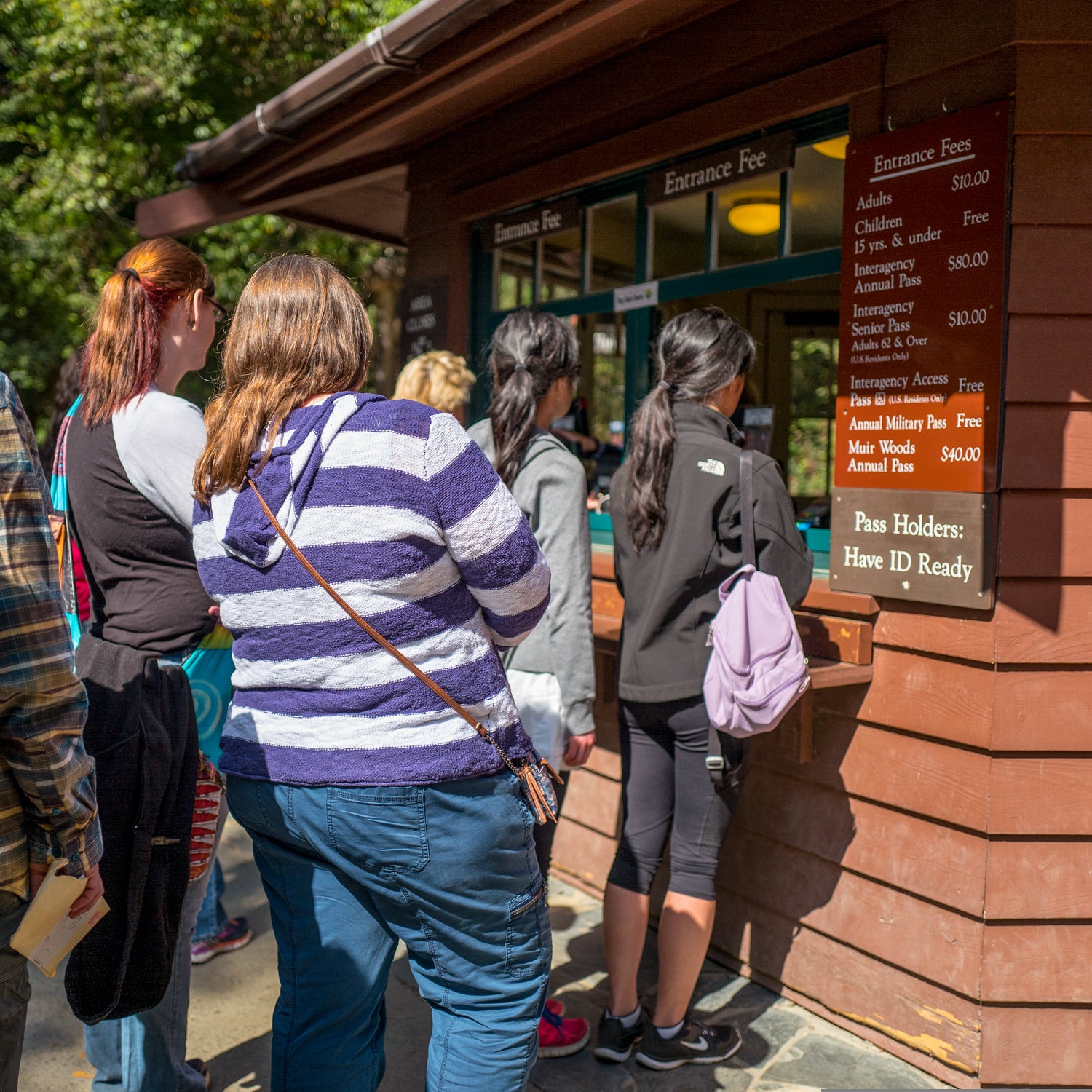It looks like interior secretary Ryan Zinke has to double entrance fees to the most popular national parks. Zinke’s , in October, meant a summer road trip through Zion or Joshua Tree would soar from $25 to $70 a car, an increase Zinke said was necessary to fund the National Park Service’s $12 billion maintenance backlog. Zinke defended his plan against a swarm of anger as late as last month, telling that fee hikes were necessary to offset senior discounts.
“When you give discounted or free passes to elderly, fourth-graders, veterans, disabled, and you do it by the carload, there’s not a whole lot of people who actually pay at our front door,” Zinke said.
Vietnam Veterans of America “small minded and mean spirited.” The National Association for Disabled People Groups followed that by calling his comments “uninformed, hurtful, and frankly unconscionable.” And when representative Anthony Brown, a Democrat from Maryland, asked Zinke how many carloads of discounted visitors were responsible for bankrupting our parks, Zinke said that, in fact, the Department of the Interior (DOI) didn’t keep track.
Zinke had struggled from the start to explain his arithmetic. The fee increases would raise $70 million annually, which is just to keep the backlog from growing each year. The plan never added up. Maybe that’s why conservative and liberal politicians wouldn’t get on board, but the final dagger seems to have come from the public.
“Seventy dollars is insane!”
Zinke allowed for just 30 days of public comment. (By comparison, the Park Service allowed seven months when it successfully proposed a much smaller increase in 2015.) In that time, more than 100,000 people responded, nearly all of them opposed to the fee hike.
“Seventy dollars is insane!” one commenter wrote, according to a list .
“I know if I were considering a trip to one of these parks and suddenly found that the trip would incur an exorbitant entrance fee, I would not … take my family on this trip,” another wrote.
This doesn’t mean that Zinke has given up completely on the idea. There are currently about 100 parks that charge for entry, and a DOI official who spoke to the Post off the record said that the department is still considering a 10 percent fee increase for those parks and a $20 increase to the $80 annual pass.
Still, rolling over on his initial plan was the for Zinke in the past two months, and it seems to have been doomed by the same faults that tanked his proposed massive reorganization of the DOI: poor tact and bad planning. Not only would Zinke’s plan fail to make a dent in the backlog, but President Trump’s 2018 budget proposal, rolled out early last year, included $400 million in cuts to the Park Service, essentially making the shortfall even larger. Congress didn't move on that recommendation, but combined with Zinke’s fee hikes, it seemed like the administration was trying to stick taxpayers with the tab; meanwhile, Trump has requested hundreds of billions .����
Then there were the optics. In the Post article, Rich Dolesh, vice president of the National Recreation and Parks Association, said that a study his group conducted found that people who earned $30,000 or less per year were the most likely to cancel trips as a result of fee hikes. Zinke never said so, but limiting access—or at least spreading out the crowds—seems to have been part of the plan. “Some of our principal parks are loved to death,” he said in March at the congressional committee hearing. Not everyone thought it was a bad idea. that the fee hikes would help the parks: “People turned off by the increase will (wisely!) move their trips to the offseason, where prices will remain at current levels, crowds are thinner, lodging is easier to find, and the scenery is just as stunning. Or they’ll look to one of the other 400 NPS sites to visit, giving those 17 popular kids a breather.”
Of course, the problem with that logic is that, during the time of year when most people want to get outside, Zinke’s plan would turn the most popular parks into VIP lounges for the well-to-do—a very un-American distortion of what’s supposed to be America’s best idea.
The larger issue is that Trump, Zinke, and Congress as a whole simply refuse to properly fund our parks. This administration has made it clear that it expects public lands to turn a profit, whether by revoking environmental protections to allow mining or by sticking tourists with the bill. The next big idea to fund the backlog is to pay it down through oil royalties. Zinke supports this strategy, although this plan also has problems with its arithmetic. And while public outrage defeated a flawed idea this time, in the past. It could fail again in the future.


